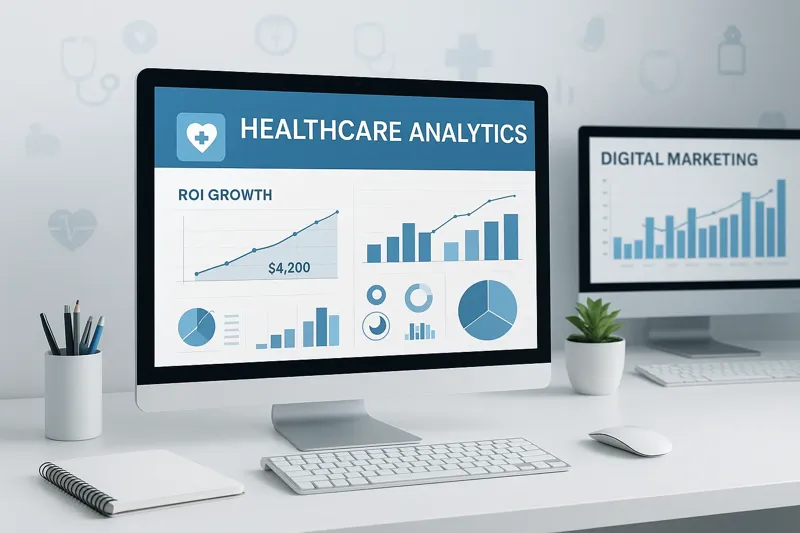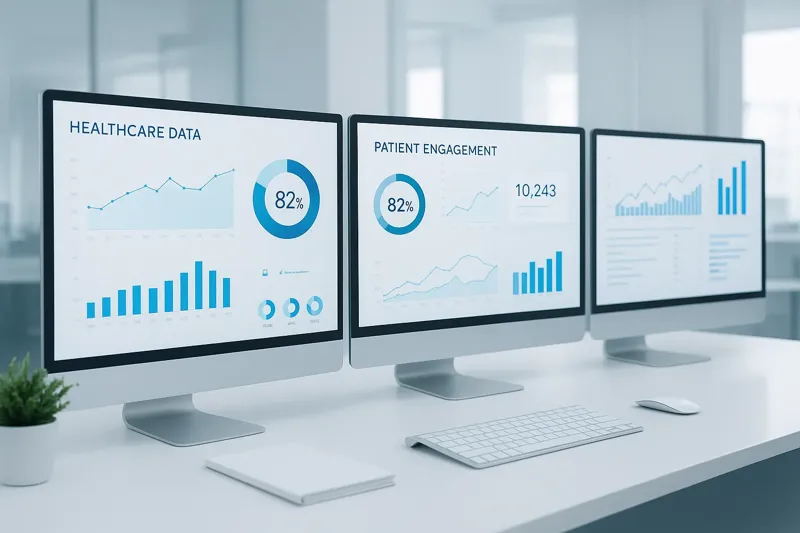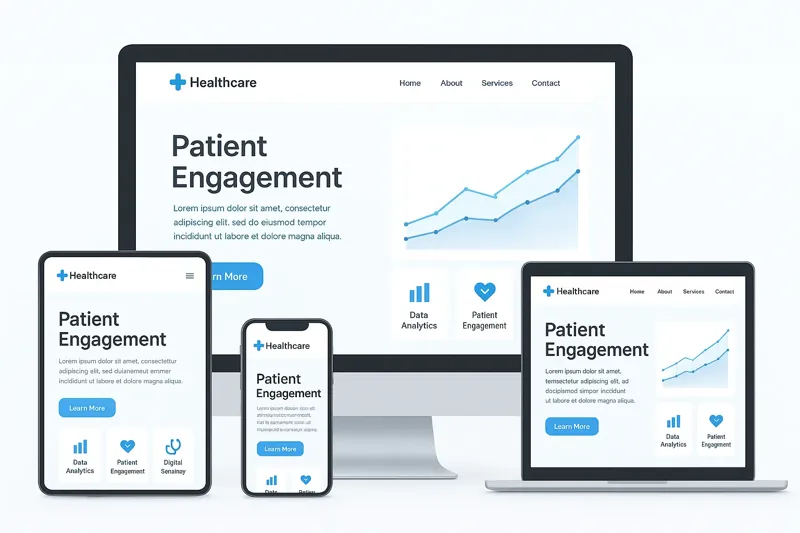The Critical Balance Between Marketing Innovation and Regulatory Compliance
Healthcare digital marketing presents unique challenges and opportunities shaped by stringent regulatory frameworks. This article explores how healthcare providers and marketers can align impactful digital strategies with mandates like HIPAA and GDPR, protecting patient information while fostering transparent and effective engagement.
Foundations of Healthcare Regulatory Compliance in Digital Marketing
Digital marketing in healthcare operates under a complex framework of regulations designed to protect patient privacy and ensure ethical practices. The most prominent of these are HIPAA (Health Insurance Portability and Accountability Act) in the United States and GDPR (General Data Protection Regulation) in Europe. HIPAA mandates strict controls over protected health information (PHI), including guidelines for data handling, security, and patient authorization. It requires healthcare organizations to obtain explicit consent before using PHI for marketing and to establish Business Associate Agreements (BAAs) with vendors who process or store this data.
In Europe, GDPR imposes similar but more comprehensive data privacy rules, emphasizing transparency, the right to access, data minimization, and breach notifications. Organizations operating across borders must navigate these overlapping regulations to remain compliant. State-specific laws like the California Consumer Privacy Act (CCPA) also add layers of restrictions, particularly around consumer rights and data security (Healthcare Marketing Compliance).
Understanding the scope and definitions of PHI is essential. PHI encompasses any individually identifiable health information held or transmitted by healthcare providers, insurers, or related entities, including demographic data, medical records, and even indirect identifiers such as IP addresses linked to health data (HIPAA standards for protected health information). This broad scope means a wide range of digital health tools—apps, wearables, telehealth platforms—must adapt to these legal standards.
Establishing robust Business Associate Agreements with third-party vendors is crucial. These agreements ensure that vendors handling sensitive health data do so in compliance with HIPAA and other applicable laws. They specify responsibilities around data security, breach notifications, and permitted uses, forming a cornerstone of regulatory compliance (Business Associate Agreements in healthcare marketing).
As digital health technologies evolve, existing laws face challenges in adequately covering new tools and data practices. This gap calls for continuous updates and clearer enforcement protocols to safeguard patient privacy amid technological advances (legal counsel for PHI disclosures). For healthcare marketers, a thorough understanding of these regulations is fundamental for developing compliant, ethical digital marketing strategies that foster patient trust and meet legal standards (HIPAA compliance training, privacy-by-design in marketing).
Legal Frameworks and Standards Governing Healthcare Marketing Practices
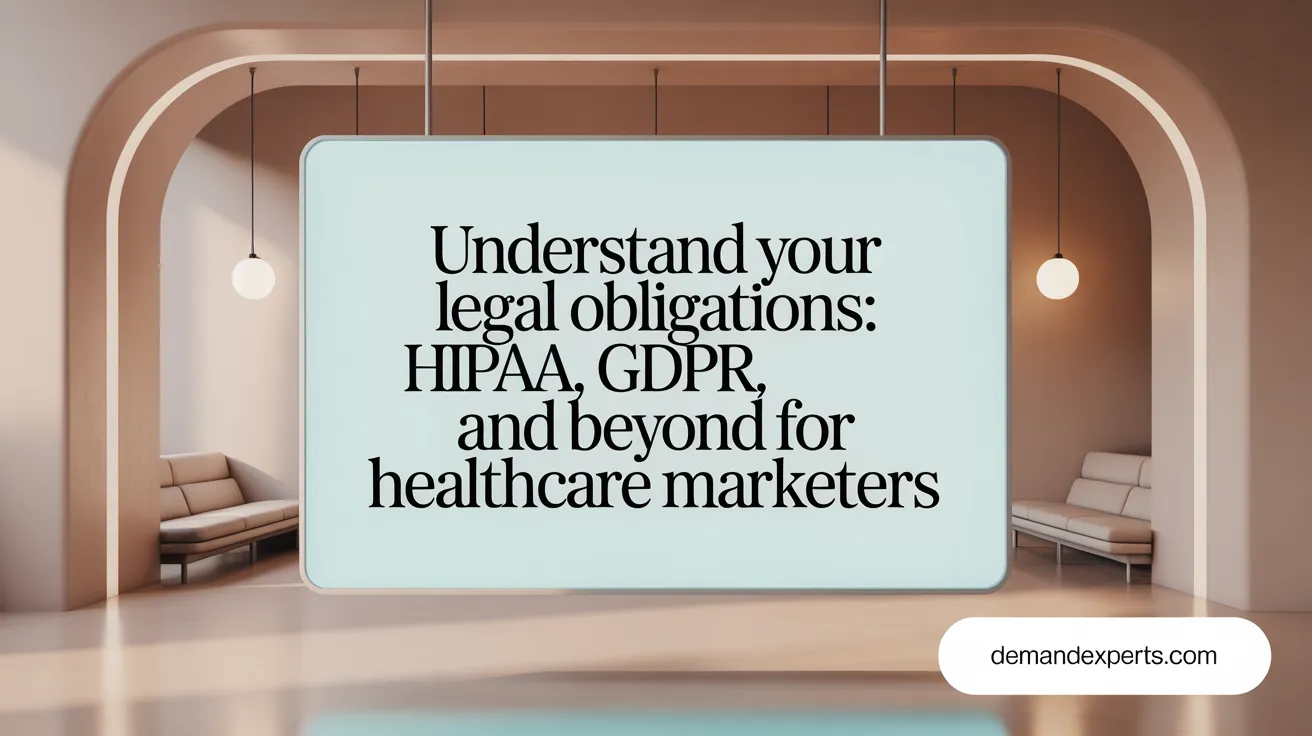
What compliance requirements and legal standards must healthcare digital marketers adhere to?
Healthcare digital marketers operate within a complex legal environment that prioritizes patient privacy and ethical conduct. The foremost regulation is HIPAA regulations for digital marketing, the Health Insurance Portability and Accountability Act, which sets strict standards for safeguarding protected health information (PHI). Marketers must obtain explicit written consent from patients before using their PHI in any marketing effort, including testimonials, stories, or images. This consent must clearly specify what data will be shared, with whom, and for what purpose.
In addition to HIPAA, international regulations like the GDPR compliance impose transparency and data rights requirements, even affecting healthcare organizations engaging with European Union patients. Marketers must practice data minimization under GDPR, provide individuals with the right to access or delete their data, and clearly disclose data collection practices.
Audience targeting must avoid PHI-based strategies such as retargeting or look-alike modeling that use sensitive health data. Instead, campaigns should focus on general demographic or interest-based segments that do not reveal patient identities (HIPAA restrictions on audience targeting).
Using compliant platforms involves securing contracts through Business Associate Agreements (BAAs), which legally bind vendors to adhere to HIPAA security and privacy standards. Technologies like encrypted email platforms—such as Paubox—or HTTPS-secured websites are essential tools for maintaining compliance.
Legal considerations extend beyond privacy to include regulations like the Stark Law and Anti-Kickback Statute, which restrict financial incentives and referral-based marketing activities. These laws prevent healthcare providers from offering gifts or financial benefits to influence patient referrals unlawfully.
Overall, healthcare marketers must ensure their strategies align with these regulations by implementing strict consent processes, employing secure and compliant technology solutions, and maintaining ethical standards to build trust and avoid costly violations.
Best Practices for Ensuring HIPAA Compliance in Digital Healthcare Marketing
What best practices and strategies ensure HIPAA compliance in healthcare marketing efforts?
Maintaining HIPAA compliance in digital marketing requires a careful, strategic approach. First, obtaining written, documented patient consent is paramount before using any protected health information (PHI) in campaigns. This consent clearly outlines how the data will be used, who will see it, and the patient's rights to revoke permission. Content shared across social media and email should avoid including any identifiable PHI; instead, focus on general health tips, educational materials, or anonymized patient stories.
Staff training is another crucial aspect. All team members involved in marketing should regularly receive updated HIPAA compliance training tailored to digital channels, ensuring they understand what constitutes PHI and how to handle it securely. Routine HIPAA compliance audits help identify potential vulnerabilities or violations, allowing organizations to implement corrective measures promptly.
Utilizing HIPAA-compliant tools and technology is essential. Secure, encrypted email platforms like Paubox, SSL-secured websites, and other digital marketing tools that carry signed Business Associate Agreements (BAAs) help safeguard sensitive data. These tools prevent unauthorized access and ensure secure communication.
Content strategies play a significant role. Marketers must craft messages that provide value without risking privacy violations. Testimonials should be anonymized, or explicit patient consent should be obtained if identifiable information is used. Visual content must be carefully vetted to exclude PHI.
Lastly, developing a comprehensive HIPAA marketing policy, engaging with vendors who specialize in healthcare compliance, and continuously monitoring updates in regulations form the foundation of a compliant marketing program. These best practices collectively enable healthcare organizations to engage their audiences effectively while respecting patient privacy and adhering to legal standards.
More information search query
HIPAA compliance best practices healthcare marketing
Adhering to these strategies not only minimizes legal risks but also builds trust with patients and fosters a reputation for ethical, privacy-conscious marketing.
Navigating Legal and Ethical Boundaries in Healthcare Marketing Communications

What are the legal boundaries regarding marketing communications like gift-giving and referral promotions in healthcare?
Healthcare organizations must carefully navigate the complex legal landscape surrounding gift-giving and referral promotion in marketing. The primary laws governing these activities are the Anti-Kickback Statute and the Stark Law, both designed to prevent improper financial incentives from influencing medical referrals.
The Anti-Kickback Statute prohibits offering or accepting anything of value with the intent to induce or reward referrals for services covered by federal healthcare programs like Medicare and Medicaid. Violations can lead to hefty fines and criminal charges. Similarly, the Stark Law bans physicians from referring patients to entities with which they have a financial relationship for designated health services, unless specific exceptions are met.
Gifts intended as marketing tools must be modest and within defined limits to avoid crossing legal boundaries. Generally, the law allows small nominal gifts valued at up to $15 per item or $75 annually per recipient, provided there is no intent to influence referrals and the gifts are not conditioned on the volume or value of business.
Offering cash equivalents such as gift cards, certificates, or high-value items is risky and often outright prohibited, especially if used to incentivize utilization of certain services or referrals. Such practices are scrutinized under both the Anti-Kickback Statute and Stark Law, which emphasize transparency and the prohibition of quid pro quo arrangements.
Healthcare entities should emphasize transparency and fairness in their promotional activities. Ensuring that any promotional gifts are nominal, non-incentivizing, and well-documented helps maintain compliance. Moreover, having clear policies aligned with legal regulations and consulting legal experts when designing marketing incentives can prevent inadvertent violations.
In summary, regulated gift-giving and referral promotions must prioritize modesty, transparency, and adherence to established legal thresholds. Doing so not only helps avoid penalties but also preserves trust and integrity within healthcare marketing efforts.
More information about gift-giving laws in healthcare and their relation to Anti-Kickback and Stark Law can be searched using queries like "Healthcare marketing gift-giving laws Anti-Kickback Stark Law."
Maintaining compliance in healthcare marketing practices requires ongoing awareness of these laws and diligent implementation of safeguards to prevent inducements that could be interpreted as violations. Clear documentation, regular staff training, and strict adherence to permissible gift limits are essential components of ethical and compliant healthcare marketing.
Integrating Data Privacy Laws into Healthcare Marketing Strategies
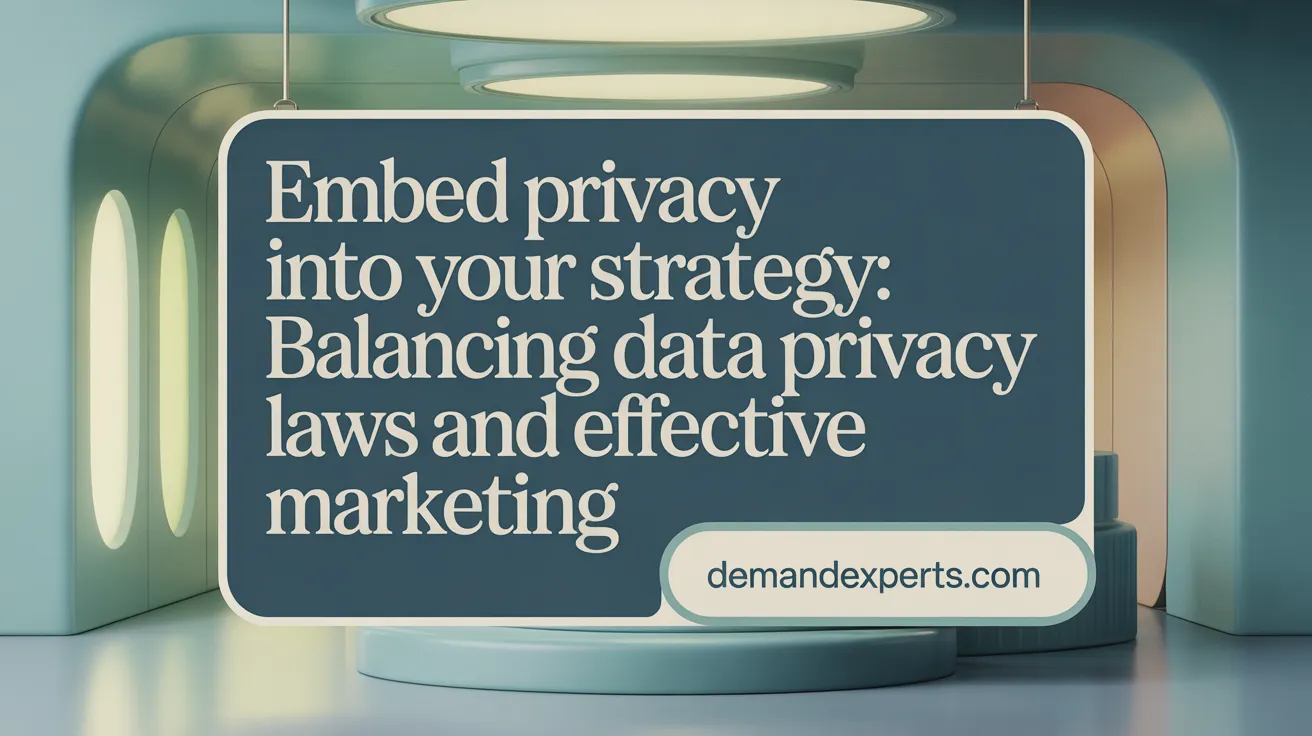
How do data privacy laws affect healthcare marketing strategies?
Data privacy laws such as HIPAA regulations, GDPR, and various state regulations exert a significant influence on healthcare marketing practices. These laws enforce strict rules on how patient information is collected, used, and shared, underscoring the importance of protecting sensitive health data. Healthcare providers and marketers must carefully manage consent processes, ensure secure data handling, and implement anonymization techniques to comply with these frameworks.
The impact of these regulations extends to targeting capabilities, where explicit consent is often required before utilizing personal health information (PHI) for advertising. Tracking methods, especially those involving third-party platforms, are restricted or necessitate specialized, compliant solutions like HIPAA-compliant digital marketing tools and data clean rooms. The legal landscape continues to evolve with legislation such as New York's S929, which further emphasizes privacy prioritization in digital marketing.
To navigate these complexities, healthcare organizations need to adopt transparency-focused practices, clearly communicating how patient data is used and offering opt-in and opt-out choices. Collaborating with legal and technical experts ensures that campaigns are both effective and compliant. Embracing privacy-preserving tools and techniques not only reduces legal risks but also builds patient trust, which is essential for long-term success.
By adopting a privacy-first approach, healthcare marketers can balance regulatory adherence with innovative marketing strategies, leveraging technologies that secure and anonymize data while still engaging target audiences effectively.
This comprehensive strategy involves deploying technologies such as secure data environments, encrypted communication channels via HIPAA-compliant email marketing solutions, and advanced analytics systems that do not compromise data integrity. Such efforts safeguard patient rights, uphold organizational credibility, and ensure that marketing efforts align with current legal standards.
In summary, integrating data privacy laws into healthcare marketing requires a strategic blend of compliance, transparency, and technological innovation. Organizations that prioritize data privacy not only avoid penalties but also foster a culture of trust and respect with patients, laying the foundation for sustainable growth and ethical marketing excellence.
More information search query: Healthcare data privacy marketing HIPAA GDPR CCPA
Tools, Technologies, and Protocols to Ensure Healthcare Marketing Compliance
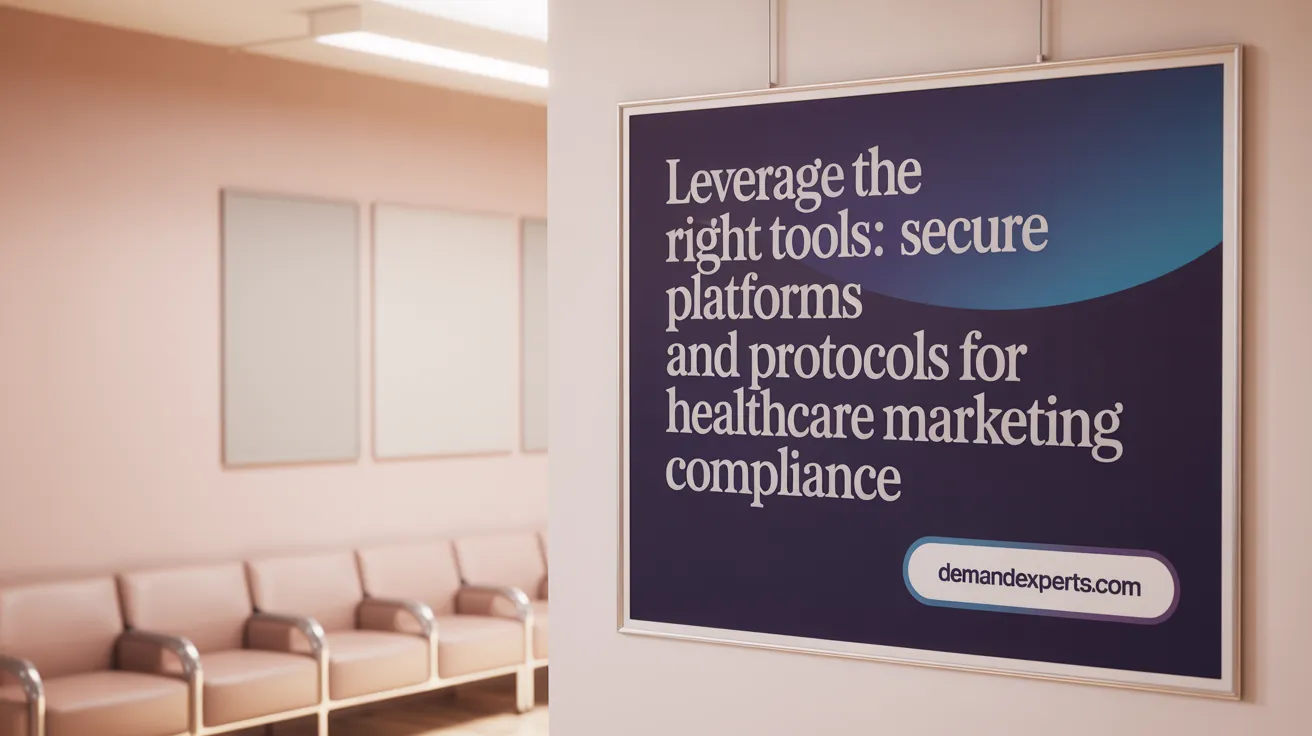
Maintaining compliance with healthcare regulations such as HIPAA regulations and GDPR requires a combination of specialized tools, secure communication protocols, and established procedures. Essential digital marketing tools include CRM systems that are both HIPAA- and GDPR-compliant, which allow healthcare providers to manage patient information responsibly while enabling targeted outreach. Encryption software and secure communication platforms, like TLS for email and end-to-end encrypted messaging services such as Paubox, are vital for protecting sensitive information during transmission. These tools ensure that any digital interaction involving protected health information (PHI) remains confidential and secure.
Consent management platforms play a crucial role in obtaining, documenting, and managing patient consent for marketing communications, especially when using personal data or testimonials. They help organizations ensure that they only proceed with marketing efforts once proper authorization has been secured, complying with both HIPAA and GDPR requirements.
For URL sharing and tracking, HIPAA-compliant URL shorteners like BL.INK are highly recommended. They provide encrypted links, QR codes, and detailed analytics while respecting privacy standards—allowing healthcare marketers to track engagement without exposing PHI. These tools ensure that any digital links used in campaigns are secure and do not leak sensitive patient data.
Protocols to uphold compliance include routine privacy impact assessments, staff training programs, and the development of clear policies regarding data minimization, storage, and sharing. Regular internal audits help detect and address potential compliance gaps early. Implementing a compliance checklist and risk assessment templates ensures ongoing adherence to evolving legal requirements.
More advanced practices involve integrating AI-driven compliance tools that adapt to new regulations, supporting transparent, patient-centered marketing. Continuous education for staff on privacy standards, updated policies, and emerging technologies further strengthen legal compliance.
In summary, leveraging HIPAA- and GDPR-compliant tools, maintaining secure communication channels, managing consent diligently, and adhering to strict protocols are vital to executing effective and compliant healthcare digital marketing campaigns. As privacy laws become more rigorous, healthcare organizations must adapt by adopting future-ready, compliant solutions that uphold patient trust and legal standards.
Measuring Marketing Effectiveness Within Healthcare Compliance Constraints

Healthcare marketers face significant challenges when it comes to assessing the success of their campaigns without violating strict privacy laws like HIPAA regulations (Health Insurance Portability and Accountability Act). To remain compliant, strategies must focus on non-PHI metrics that gauge engagement while safeguarding patient confidentiality.
Non-PHI metrics—such as website page views, time spent on pages, click-through rates, and form submissions—offer valuable insights without collecting identifiable health information. These indicators can help determine whether marketing efforts are reaching the intended audience and prompting desired actions.
Using compliant analytics platforms is crucial. Tools designed specifically for healthcare entities often support privacy features like de-identification and consent management. For example, HIPAA-eligible platforms enable tracking of user behavior without storing or transmitting PHI, aligning with HIPAA Privacy and Security Rules. When employing cookies or scripts for analysis, configuration to exclude PHI is essential, and anonymized or aggregated data should be prioritized.
Integration of Business Associate Agreements (BAAs) with tracking tools ensures that data sharing complies with legal standards. Vendors offering secure platforms—such as specialized healthcare analytics providers—sign BAAs, providing an extra layer of protection and accountability.
Collecting feedback ethically involves using surveys that do not request PHI, focusing instead on satisfaction, service quality, or general demographic data. When gathering patient opinions, ensure explicit consent procedures are in place and responses are anonymized.
While tracking performance, marketers must balance the need for insights with privacy considerations. This involves configuring tracking technologies to avoid the capture of any health-specific details and continuously auditing privacy practices to prevent inadvertent breaches.
In summary, effective measurement within healthcare requires a combination of non-PHI metrics, compliant analytic tools, clear consent protocols, and secure vendor partnerships. These practices enable healthcare organizations to evaluate marketing success responsibly while maintaining trust and adherence to legal requirements.
More information can be found by searching for 'HIPAA compliant marketing analytics tracking' to identify suitable tools, recent guidelines, and best practices for privacy-focused performance measurement in healthcare marketing.
Navigating Risks: Penalties and Future Trends in Healthcare Marketing Compliance
Non-compliance with healthcare marketing laws, especially HIPAA, poses serious legal and financial threats. Violations can lead to hefty fines, investigation costs, and corrective action mandates, with repeated offenses risking exclusion from federal programs. Criminal charges are also possible if misconduct involves malicious intent or breach of privacy, potentially resulting in jail time for responsible individuals.
Financial penalties are significant; fines can range from $137 per violation up to $2.1 million annually, depending on the violation category and negligence level. Data breaches exposing Protected Health Information (PHI) can cause patient harm, identity theft, and fraud, further increasing legal exposure and operational risks.
Beyond monetary fines, organizations face reputational damage, which erodes patient trust and impacts long-term viability. Operationally, penalties can necessitate costly system overhauls and compliance audits, disrupting normal business functions.
Emerging trends in healthcare marketing compliance include the rise of AI-driven personalization, increased international data regulation efforts like GDPR, and the global harmonization of privacy standards. These developments demand that healthcare providers adopt adaptive and forward-thinking strategies.
To respond effectively, organizations need to implement robust compliance programs, regularly update staff on legal changes, and leverage compliant technological solutions. Building strong vendor partnerships with signed Business Associate Agreements (BAAs) and adopting advanced cybersecurity measures help safeguard data. Ultimately, proactive legal oversight, continuous training, and embracing transparency will be essential to navigate the complex and evolving legal landscape in healthcare marketing.
Ensuring Ethical and Compliant Healthcare Digital Marketing
Healthcare digital marketing requires a careful synthesis of innovative outreach and stringent regulatory adherence. By understanding foundational laws like HIPAA and GDPR, respecting patient privacy rights, and implementing secure, compliant technologies, healthcare organizations can execute effective marketing strategies that build trust and protect sensitive information. Embracing best practices, ethical standards, and proactive compliance measures mitigates legal risks and positions providers to navigate evolving regulations confidently. Ultimately, success in healthcare marketing lies in balancing patient welfare with strategic communication, fostering transparent engagement that upholds both legal and moral obligations in a rapidly changing digital landscape.
The Critical Balance Between Marketing Innovation and Regulatory Compliance
Healthcare digital marketing presents unique challenges and opportunities shaped by stringent regulatory frameworks. This article explores how healthcare providers and marketers can align impactful digital strategies with mandates like HIPAA and GDPR, protecting patient information while fostering transparent and effective engagement.
Foundations of Healthcare Regulatory Compliance in Digital Marketing
Digital marketing in healthcare operates under a complex framework of regulations designed to protect patient privacy and ensure ethical practices. The most prominent of these are HIPAA (Health Insurance Portability and Accountability Act) in the United States and GDPR (General Data Protection Regulation) in Europe. HIPAA mandates strict controls over protected health information (PHI), including guidelines for data handling, security, and patient authorization. It requires healthcare organizations to obtain explicit consent before using PHI for marketing and to establish Business Associate Agreements (BAAs) with vendors who process or store this data.
In Europe, GDPR imposes similar but more comprehensive data privacy rules, emphasizing transparency, the right to access, data minimization, and breach notifications. Organizations operating across borders must navigate these overlapping regulations to remain compliant. State-specific laws like the California Consumer Privacy Act (CCPA) also add layers of restrictions, particularly around consumer rights and data security (Healthcare Marketing Compliance).
Understanding the scope and definitions of PHI is essential. PHI encompasses any individually identifiable health information held or transmitted by healthcare providers, insurers, or related entities, including demographic data, medical records, and even indirect identifiers such as IP addresses linked to health data (HIPAA standards for protected health information). This broad scope means a wide range of digital health tools—apps, wearables, telehealth platforms—must adapt to these legal standards.
Establishing robust Business Associate Agreements with third-party vendors is crucial. These agreements ensure that vendors handling sensitive health data do so in compliance with HIPAA and other applicable laws. They specify responsibilities around data security, breach notifications, and permitted uses, forming a cornerstone of regulatory compliance (Business Associate Agreements in healthcare marketing).
As digital health technologies evolve, existing laws face challenges in adequately covering new tools and data practices. This gap calls for continuous updates and clearer enforcement protocols to safeguard patient privacy amid technological advances (legal counsel for PHI disclosures). For healthcare marketers, a thorough understanding of these regulations is fundamental for developing compliant, ethical digital marketing strategies that foster patient trust and meet legal standards (HIPAA compliance training, privacy-by-design in marketing).
Legal Frameworks and Standards Governing Healthcare Marketing Practices

What compliance requirements and legal standards must healthcare digital marketers adhere to?
Healthcare digital marketers operate within a complex legal environment that prioritizes patient privacy and ethical conduct. The foremost regulation is HIPAA regulations for digital marketing, the Health Insurance Portability and Accountability Act, which sets strict standards for safeguarding protected health information (PHI). Marketers must obtain explicit written consent from patients before using their PHI in any marketing effort, including testimonials, stories, or images. This consent must clearly specify what data will be shared, with whom, and for what purpose.
In addition to HIPAA, international regulations like the GDPR compliance impose transparency and data rights requirements, even affecting healthcare organizations engaging with European Union patients. Marketers must practice data minimization under GDPR, provide individuals with the right to access or delete their data, and clearly disclose data collection practices.
Audience targeting must avoid PHI-based strategies such as retargeting or look-alike modeling that use sensitive health data. Instead, campaigns should focus on general demographic or interest-based segments that do not reveal patient identities (HIPAA restrictions on audience targeting).
Using compliant platforms involves securing contracts through Business Associate Agreements (BAAs), which legally bind vendors to adhere to HIPAA security and privacy standards. Technologies like encrypted email platforms—such as Paubox—or HTTPS-secured websites are essential tools for maintaining compliance.
Legal considerations extend beyond privacy to include regulations like the Stark Law and Anti-Kickback Statute, which restrict financial incentives and referral-based marketing activities. These laws prevent healthcare providers from offering gifts or financial benefits to influence patient referrals unlawfully.
Overall, healthcare marketers must ensure their strategies align with these regulations by implementing strict consent processes, employing secure and compliant technology solutions, and maintaining ethical standards to build trust and avoid costly violations.
Best Practices for Ensuring HIPAA Compliance in Digital Healthcare Marketing
What best practices and strategies ensure HIPAA compliance in healthcare marketing efforts?
Maintaining HIPAA compliance in digital marketing requires a careful, strategic approach. First, obtaining written, documented patient consent is paramount before using any protected health information (PHI) in campaigns. This consent clearly outlines how the data will be used, who will see it, and the patient's rights to revoke permission. Content shared across social media and email should avoid including any identifiable PHI; instead, focus on general health tips, educational materials, or anonymized patient stories.
Staff training is another crucial aspect. All team members involved in marketing should regularly receive updated HIPAA compliance training tailored to digital channels, ensuring they understand what constitutes PHI and how to handle it securely. Routine HIPAA compliance audits help identify potential vulnerabilities or violations, allowing organizations to implement corrective measures promptly.
Utilizing HIPAA-compliant tools and technology is essential. Secure, encrypted email platforms like Paubox, SSL-secured websites, and other digital marketing tools that carry signed Business Associate Agreements (BAAs) help safeguard sensitive data. These tools prevent unauthorized access and ensure secure communication.
Content strategies play a significant role. Marketers must craft messages that provide value without risking privacy violations. Testimonials should be anonymized, or explicit patient consent should be obtained if identifiable information is used. Visual content must be carefully vetted to exclude PHI.
Lastly, developing a comprehensive HIPAA marketing policy, engaging with vendors who specialize in healthcare compliance, and continuously monitoring updates in regulations form the foundation of a compliant marketing program. These best practices collectively enable healthcare organizations to engage their audiences effectively while respecting patient privacy and adhering to legal standards.
More information search query
HIPAA compliance best practices healthcare marketing
Adhering to these strategies not only minimizes legal risks but also builds trust with patients and fosters a reputation for ethical, privacy-conscious marketing.
Navigating Legal and Ethical Boundaries in Healthcare Marketing Communications

What are the legal boundaries regarding marketing communications like gift-giving and referral promotions in healthcare?
Healthcare organizations must carefully navigate the complex legal landscape surrounding gift-giving and referral promotion in marketing. The primary laws governing these activities are the Anti-Kickback Statute and the Stark Law, both designed to prevent improper financial incentives from influencing medical referrals.
The Anti-Kickback Statute prohibits offering or accepting anything of value with the intent to induce or reward referrals for services covered by federal healthcare programs like Medicare and Medicaid. Violations can lead to hefty fines and criminal charges. Similarly, the Stark Law bans physicians from referring patients to entities with which they have a financial relationship for designated health services, unless specific exceptions are met.
Gifts intended as marketing tools must be modest and within defined limits to avoid crossing legal boundaries. Generally, the law allows small nominal gifts valued at up to $15 per item or $75 annually per recipient, provided there is no intent to influence referrals and the gifts are not conditioned on the volume or value of business.
Offering cash equivalents such as gift cards, certificates, or high-value items is risky and often outright prohibited, especially if used to incentivize utilization of certain services or referrals. Such practices are scrutinized under both the Anti-Kickback Statute and Stark Law, which emphasize transparency and the prohibition of quid pro quo arrangements.
Healthcare entities should emphasize transparency and fairness in their promotional activities. Ensuring that any promotional gifts are nominal, non-incentivizing, and well-documented helps maintain compliance. Moreover, having clear policies aligned with legal regulations and consulting legal experts when designing marketing incentives can prevent inadvertent violations.
In summary, regulated gift-giving and referral promotions must prioritize modesty, transparency, and adherence to established legal thresholds. Doing so not only helps avoid penalties but also preserves trust and integrity within healthcare marketing efforts.
More information about gift-giving laws in healthcare and their relation to Anti-Kickback and Stark Law can be searched using queries like "Healthcare marketing gift-giving laws Anti-Kickback Stark Law."
Maintaining compliance in healthcare marketing practices requires ongoing awareness of these laws and diligent implementation of safeguards to prevent inducements that could be interpreted as violations. Clear documentation, regular staff training, and strict adherence to permissible gift limits are essential components of ethical and compliant healthcare marketing.
Integrating Data Privacy Laws into Healthcare Marketing Strategies

How do data privacy laws affect healthcare marketing strategies?
Data privacy laws such as HIPAA regulations, GDPR, and various state regulations exert a significant influence on healthcare marketing practices. These laws enforce strict rules on how patient information is collected, used, and shared, underscoring the importance of protecting sensitive health data. Healthcare providers and marketers must carefully manage consent processes, ensure secure data handling, and implement anonymization techniques to comply with these frameworks.
The impact of these regulations extends to targeting capabilities, where explicit consent is often required before utilizing personal health information (PHI) for advertising. Tracking methods, especially those involving third-party platforms, are restricted or necessitate specialized, compliant solutions like HIPAA-compliant digital marketing tools and data clean rooms. The legal landscape continues to evolve with legislation such as New York's S929, which further emphasizes privacy prioritization in digital marketing.
To navigate these complexities, healthcare organizations need to adopt transparency-focused practices, clearly communicating how patient data is used and offering opt-in and opt-out choices. Collaborating with legal and technical experts ensures that campaigns are both effective and compliant. Embracing privacy-preserving tools and techniques not only reduces legal risks but also builds patient trust, which is essential for long-term success.
By adopting a privacy-first approach, healthcare marketers can balance regulatory adherence with innovative marketing strategies, leveraging technologies that secure and anonymize data while still engaging target audiences effectively.
This comprehensive strategy involves deploying technologies such as secure data environments, encrypted communication channels via HIPAA-compliant email marketing solutions, and advanced analytics systems that do not compromise data integrity. Such efforts safeguard patient rights, uphold organizational credibility, and ensure that marketing efforts align with current legal standards.
In summary, integrating data privacy laws into healthcare marketing requires a strategic blend of compliance, transparency, and technological innovation. Organizations that prioritize data privacy not only avoid penalties but also foster a culture of trust and respect with patients, laying the foundation for sustainable growth and ethical marketing excellence.
More information search query: Healthcare data privacy marketing HIPAA GDPR CCPA
Tools, Technologies, and Protocols to Ensure Healthcare Marketing Compliance

Maintaining compliance with healthcare regulations such as HIPAA regulations and GDPR requires a combination of specialized tools, secure communication protocols, and established procedures. Essential digital marketing tools include CRM systems that are both HIPAA- and GDPR-compliant, which allow healthcare providers to manage patient information responsibly while enabling targeted outreach. Encryption software and secure communication platforms, like TLS for email and end-to-end encrypted messaging services such as Paubox, are vital for protecting sensitive information during transmission. These tools ensure that any digital interaction involving protected health information (PHI) remains confidential and secure.
Consent management platforms play a crucial role in obtaining, documenting, and managing patient consent for marketing communications, especially when using personal data or testimonials. They help organizations ensure that they only proceed with marketing efforts once proper authorization has been secured, complying with both HIPAA and GDPR requirements.
For URL sharing and tracking, HIPAA-compliant URL shorteners like BL.INK are highly recommended. They provide encrypted links, QR codes, and detailed analytics while respecting privacy standards—allowing healthcare marketers to track engagement without exposing PHI. These tools ensure that any digital links used in campaigns are secure and do not leak sensitive patient data.
Protocols to uphold compliance include routine privacy impact assessments, staff training programs, and the development of clear policies regarding data minimization, storage, and sharing. Regular internal audits help detect and address potential compliance gaps early. Implementing a compliance checklist and risk assessment templates ensures ongoing adherence to evolving legal requirements.
More advanced practices involve integrating AI-driven compliance tools that adapt to new regulations, supporting transparent, patient-centered marketing. Continuous education for staff on privacy standards, updated policies, and emerging technologies further strengthen legal compliance.
In summary, leveraging HIPAA- and GDPR-compliant tools, maintaining secure communication channels, managing consent diligently, and adhering to strict protocols are vital to executing effective and compliant healthcare digital marketing campaigns. As privacy laws become more rigorous, healthcare organizations must adapt by adopting future-ready, compliant solutions that uphold patient trust and legal standards.
Measuring Marketing Effectiveness Within Healthcare Compliance Constraints

Healthcare marketers face significant challenges when it comes to assessing the success of their campaigns without violating strict privacy laws like HIPAA regulations (Health Insurance Portability and Accountability Act). To remain compliant, strategies must focus on non-PHI metrics that gauge engagement while safeguarding patient confidentiality.
Non-PHI metrics—such as website page views, time spent on pages, click-through rates, and form submissions—offer valuable insights without collecting identifiable health information. These indicators can help determine whether marketing efforts are reaching the intended audience and prompting desired actions.
Using compliant analytics platforms is crucial. Tools designed specifically for healthcare entities often support privacy features like de-identification and consent management. For example, HIPAA-eligible platforms enable tracking of user behavior without storing or transmitting PHI, aligning with HIPAA Privacy and Security Rules. When employing cookies or scripts for analysis, configuration to exclude PHI is essential, and anonymized or aggregated data should be prioritized.
Integration of Business Associate Agreements (BAAs) with tracking tools ensures that data sharing complies with legal standards. Vendors offering secure platforms—such as specialized healthcare analytics providers—sign BAAs, providing an extra layer of protection and accountability.
Collecting feedback ethically involves using surveys that do not request PHI, focusing instead on satisfaction, service quality, or general demographic data. When gathering patient opinions, ensure explicit consent procedures are in place and responses are anonymized.
While tracking performance, marketers must balance the need for insights with privacy considerations. This involves configuring tracking technologies to avoid the capture of any health-specific details and continuously auditing privacy practices to prevent inadvertent breaches.
In summary, effective measurement within healthcare requires a combination of non-PHI metrics, compliant analytic tools, clear consent protocols, and secure vendor partnerships. These practices enable healthcare organizations to evaluate marketing success responsibly while maintaining trust and adherence to legal requirements.
More information can be found by searching for 'HIPAA compliant marketing analytics tracking' to identify suitable tools, recent guidelines, and best practices for privacy-focused performance measurement in healthcare marketing.
Navigating Risks: Penalties and Future Trends in Healthcare Marketing Compliance
Non-compliance with healthcare marketing laws, especially HIPAA, poses serious legal and financial threats. Violations can lead to hefty fines, investigation costs, and corrective action mandates, with repeated offenses risking exclusion from federal programs. Criminal charges are also possible if misconduct involves malicious intent or breach of privacy, potentially resulting in jail time for responsible individuals.
Financial penalties are significant; fines can range from $137 per violation up to $2.1 million annually, depending on the violation category and negligence level. Data breaches exposing Protected Health Information (PHI) can cause patient harm, identity theft, and fraud, further increasing legal exposure and operational risks.
Beyond monetary fines, organizations face reputational damage, which erodes patient trust and impacts long-term viability. Operationally, penalties can necessitate costly system overhauls and compliance audits, disrupting normal business functions.
Emerging trends in healthcare marketing compliance include the rise of AI-driven personalization, increased international data regulation efforts like GDPR, and the global harmonization of privacy standards. These developments demand that healthcare providers adopt adaptive and forward-thinking strategies.
To respond effectively, organizations need to implement robust compliance programs, regularly update staff on legal changes, and leverage compliant technological solutions. Building strong vendor partnerships with signed Business Associate Agreements (BAAs) and adopting advanced cybersecurity measures help safeguard data. Ultimately, proactive legal oversight, continuous training, and embracing transparency will be essential to navigate the complex and evolving legal landscape in healthcare marketing.
Ensuring Ethical and Compliant Healthcare Digital Marketing
Healthcare digital marketing requires a careful synthesis of innovative outreach and stringent regulatory adherence. By understanding foundational laws like HIPAA and GDPR, respecting patient privacy rights, and implementing secure, compliant technologies, healthcare organizations can execute effective marketing strategies that build trust and protect sensitive information. Embracing best practices, ethical standards, and proactive compliance measures mitigates legal risks and positions providers to navigate evolving regulations confidently. Ultimately, success in healthcare marketing lies in balancing patient welfare with strategic communication, fostering transparent engagement that upholds both legal and moral obligations in a rapidly changing digital landscape.



